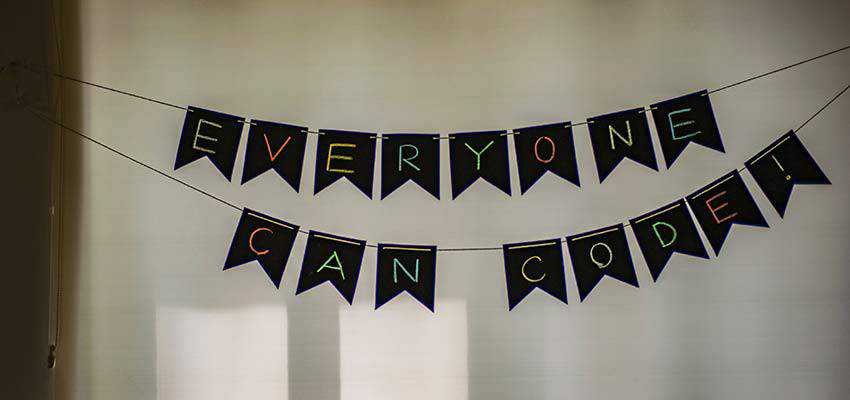Being a web designer isn’t easy. Depending on your niche, it requires a combination of finely-tuned technical and visual skills. And it takes a major commitment in order to keep those skills relevant in an ever-changing industry.
What’s more, the proverbial rug can be pulled out from under us at any moment. Tried-and-true methods can turn to dust and great tools can disappear without a trace. Even industry-related legislation can throw everything into a tizzy.
Taken together, it can all be very difficult to deal with – let alone thrive in such an environment. But it’s not impossible.
Part of the path to maintaining both success and sanity comes from embracing the things we learn from experience: the inconvenient truths.
Over my 20+ years as a designer, I’d like to think that I’ve experienced quite a wild ride. In that spirit, I’ve put together a list of “truths” that, once understood, can help to make for a smoother journey.
1. A Website Is Forever a Work in Progress
Have you ever been so eager to finish off a project that, once it finally launches, you let out a sigh of relief? If so, how did you react when your client came back a short time later and requested a bunch of changes (or, even worse, reported problems)?
This used to drive me insane. When all you want to do is knock another item off your to-do list, it feels like you’re being dragged right back to where you were. And it gets in the way of that next big thing you want to do.
But it’s exactly the wrong way to look at the situation. I’m starting to believe that there is no such thing as a “completed” website. They aren’t something you can truly finish. Client needs change. Content evolves. Things break.
Once you wrap your head around this fact, it becomes less of a disappointment and more of an expected part of your job.

2. The Way You Work Will Change
Designers are often creatures of habit. We have specific tools we love. We use our favorite code snippets over and over. We develop a workflow that works for us.
But all of those things will undoubtedly change over time. For instance, the odds are that you work differently now than you did 5 years ago. And the longer you are a part of this industry, the more of these changes you’ll experience.
This can be very difficult. It requires us to evolve along with the web’s standards and best practices – not to mention trends. The web is always progressing for the better, but it takes effort if you want to stick around for the long haul. Indeed, it often means that a periodic reinvention is in order to avoid falling too far behind.

3. There Will Always Be Someone “Better” (And It Doesn’t Matter)
So often, we judge our own achievements against those of other designers. We can use such comparisons to either prop ourselves up or tear ourselves down.
Here’s the thing: There will always be someone else out there who, according to our own perception, created a better portfolio or has demonstrated a more intricate knowledge of code. Some may take this as proof that they aren’t good enough and don’t deserve success.
But the web is a big place. Another person’s perceived expertise doesn’t disqualify you from anything. You can still be great at what you do, regardless of what anyone else has achieved.
If looking to others inspires anything, it should be to improve your own skills. We are fortunate to work in an industry that offers a ton of educational opportunities. You can learn anytime, anywhere and at your own unique pace.
In the end, it’s about keeping your eyes straight ahead and not worrying so much about what others are doing. While we can take cues from other designers, we shouldn’t be bound by them.

4. You Can’t Know Everything
There is a constant weight on web designers to have all the answers. Clients challenge us daily with requests that go beyond the ordinary. And then there is the pressure to keep up with new standards, methods and technologies. It’s easy to feel stressed out and behind the times.
We are inundated with questions and more information than we know what to do with. Sometimes, this can lead to faking it in front of others while silently panicking in private.
One thing I’ve learned is that not everything applies equally. Developments in areas like CSS or WordPress impact my own little niche more than, say, 3D animation or a fancy new mockup tool. And the answer will be different for each of us.
Instead of trying to know “all the things”, focus on the items that have a more direct relationship to your area of expertise.

5. Not Every Project Will Be a Success
Starting a new project is usually an exciting experience. You’re taking off on a new journey and looking forward to creating something great. The expectation is that it will look and function beautifully. You might also expect to make a little money as well.
But the result isn’t always that Hollywood ending we dream of. Sometimes, a project goes off the rails and just doesn’t turn out as well as you had hoped. The reasons why can vary from a client with no clear vision, to tiny budgets, to giving a client what they want – even when it’s not necessarily for the better. In addition, even the best designers can deliver the occasional dud.
Every one of us is going to experience this at one time or another. It’s certainly not fun and there’s always the worry of damaging a hard-earned reputation. But it can also serve as a great learning experience.
Each project, even a failed one, is an opportunity for progress. If things went poorly, figure out why and adjust accordingly.

The Truth(s) Will Set You Free
Experience is one of the greatest tools that a web designer can have. It helps to guide us when faced with a difficult situation. And it gives us perspective about what matters the most.
Sure, I still get stressed on occasion and have self-doubt. But if experience has taught me anything, it’s that those things are only temporary. Instead, I try to look at the bigger picture. If you’re committed to your work and are good at what you do, that tends to bode well for your career.
Once you start to understand the truths associated with web design, the things that used to bother you become just another day at the office. And, most days, that’s a pretty good place to be.
Related Topics
Top